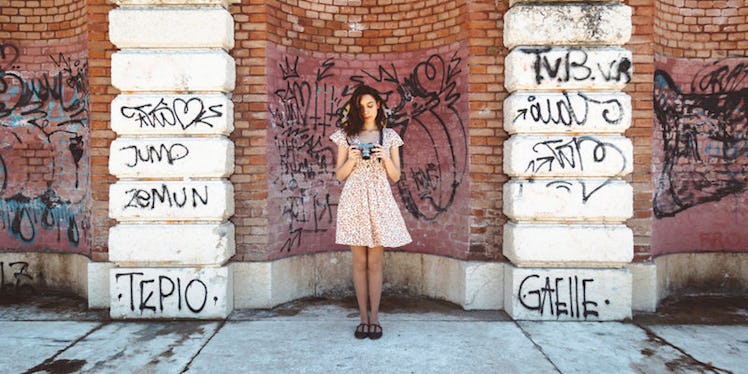
Why 'Should' Is The Most Toxic Word In The English Language
In just the last week, I've heard several people say things like, "I should be making more money;" "I should be settled down;" "I should have a corporate job;" "I should be skinnier;" or "I should be happier in my relationship."
Well, amigos, because of this and after some reflection, today I would like to declare war on the word "should."
Sounds ridiculous, I know, but I really do hate "should" with a passion. Why? Simply because it is the culprit behind 90 percent of the unhappiness I encounter as a life coach and human being.
As a society, we have become so accustomed to passively accepting what life throws at us that we have allowed ourselves to become victim to circumstance and lose sight of our power as creators of our own realities.
We spend so much time worrying about what we should do that we lose track of what we actually want to do, should we have a choice.
Choice — funny I should write that. We always have a choice, nobody has to give us anything. We tend to forget that, too.
We are experts at chasing the job, the relationship, the paycheck, the likes on Facebook, the right jean size, etc., and we easily become disconnected and distracted from the non-shoulds that make us truly happy.
We spend our whole lives trying to create the life we think the world expects from us rather than creating the world we actually want to live in.
So, why is living in the world of "should" so bad for us?
The world of "should" is a world seen through a lens of scarcity rather than abundance.
It's a world where our sense of validation is derived from external factors and not from within; it's a world where our success is measured by our ability to fit perfectly into society’s idea of the perfect box rather than our ability to create our own identities.
The carefully-crafted media and societal messages that teach us what success is and in turn, determine everything we do — from what we buy to how we should look in order not to feel left out — undermine basic human needs, like self-expression, creativity and independence.
I guess feeling like an outsider hurts more than not being able to be yourself.
But, why is that so bad? Wanting to fit in isn’t necessarily a terrible thing; we are social animals, after all.
Wanting a nice car and a big home doesn’t necessarily preclude you from living a fulfilled life. And, on that same note, it's good to have goals and aspirations. We get into trouble when we start attaching our identities and senses of self-worth to those material goals or our ability to achieve them.
After all, there will always be someone wealthier and better looking, a bigger house, a faster car and what looks like a more fulfilling relationship (at least on social media).
Nothing we ever do or become will ever be good enough because our standard is artificially high and perfection is impossible. But, like the good yet insecure souls that we are, we try anyway.
So, how do we combat this? How do we give the world and our superficial society’s idea of the ideal life the finger? We look within.
We get to know ourselves and take a moment to identify the difference between what we’ve been systematically fed and what actually resonates with us at our cores.
We learn to catch ourselves when we’re having thoughts that don't align with the things we have identified as our truths and we choose to change them.
We choose to create the changes we want to see. We choose to honor and love our imperfect selves. We choose to choose rather than simply accept and channel our energy to those who support us.
We learn to love the "should-thinkers" from afar because there is only one "should" that is actually valid, and it has everything to do with us as individuals.
We should be happy. We should be easy happy, authentic happy and happy for the sake of being happy.
That’s the only thing we should never strive to be because the answer to that mystery is in the very depths of each and every one of us and can never be found anywhere but within ourselves.